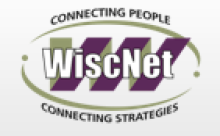Fast, affordable Internet access for all.
University of Wisconsin
Content tagged with "University of Wisconsin"
AT&T Tells Wisconsin "All Your Tax Dollar Are Belong to Us"
The motion prohibits the UW System from taking part in WiscNet, the network provider for 450 organizations, including K-12 schools, libraries, cities and county governments.No one has any doubts that AT&T and its allies are squarely behind this measure. To be clear, this has nothing to do with last-mile connections. WiscNet is not providing connections to residents. This is a question of whether local governments can use a network they build and operate collaboratively with other public institutions like UW or whether they have to take whatever AT&T is selling (many small towns only have a single incumbent offering these dedicated access connections).
Wisconsin Returns Stimulus Funds to NTIA, Award Was Going to AT&T Anyway
The story about Wisconsin becoming the first state to return broadband stimulus funds has circulated quite quickly over recent days. The state, which is one of several to have recently swung far more conservative than it traditionally is, has returned other stimulus funds unrelated to broadband as well. In this case, they were apparently surprised at the previously well-publicized terms of the award for which they applied:
State officials are returning $23 million to the federal government, saying there were too many strings attached to stimulus money that was supposed to be for expanding high-speed Internet service in schools, libraries and government agencies.
We previously noted efforts by a few legislators to meddle in a different project to preserve AT&T's monopoly on providing over-priced services to schools and community institutions in part of the state. This is different, but related as Wisconsin has made it very difficult for the network used by the University of Wisconsin to be owned by the University, a gift to AT&T that just keeps on giving. Because the stimulus funds would have been given to AT&T to expand the network, the University would have to continue using that network for the 22 year period required under the conditions of the award. But the contract with AT&T is only for 5 years -- so Wisconsin complained about "strings" attached to the award. Stop the Cap! has published an excellent research piece covering various facets of this story.
Wisconsin Republicans Want More Local Tax Dollars Flowing to AT&T
The angst is over nearly $30 million that was awarded to build more than 600 miles of fiber optic cable that will bring high-capacity broadband connections to a range of key public entities and health care providers in the four communities, each of which has indicated a desire for more reliable broadband service and, not coincidentally, has a UW campus. This project’s budget is nearly $43 million when one adds in funds contributed from groups that will benefit from the infrastructure upgrade in each community. … [T]hose backing the undertaking argue it will bring faster and more reliable Internet service to public safety agencies, health care providers, schools and community organizations in Platteville, Superior, Wausau and the Chippewa Valley (Eau Claire) area.Private telecom companies (led by AT&T) are protesting the project with a rejoinder we commonly hear in these issues:
Bill Esbeck, the executive director of the Wisconsin State Telecommunications Association, argues the project will duplicate an existing network and take revenues out of the pockets of local Internet providers. The group is asking for a state review of the plan and is considering legal action, says Esbeck.Interestingly, both sides are mostly right. The public safety, health care, and educational institutions will see faster, more reliable, and less expensive broadband. Private existing providers (mostly AT&T), will lose some revenues. Of course, those lost revenues would have come from the tax base in the form of local governments having to greatly overpay for telecom services. The fiscally responsible path for local governments is to build and own (perhaps operate if they wish) their own broadband networks rather than leasing overpriced services from carriers like AT&T.



